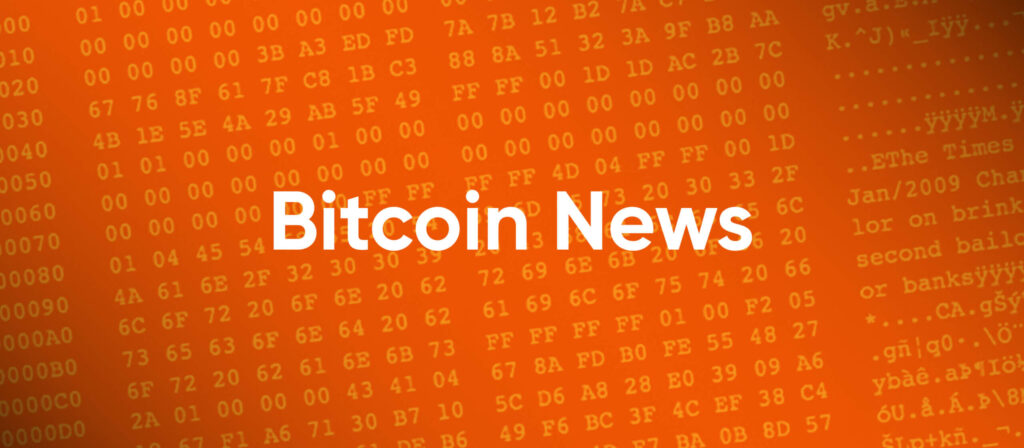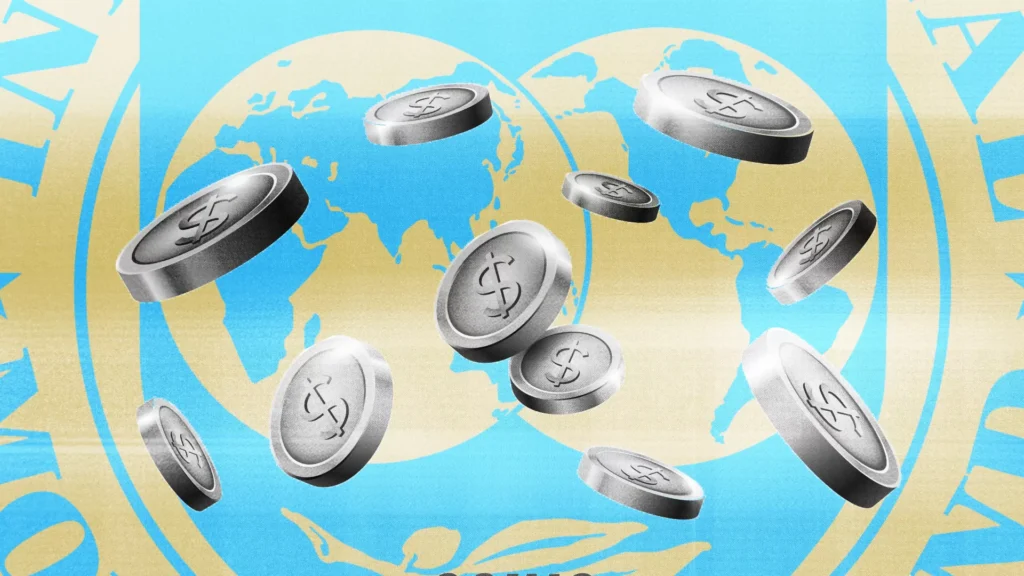The Financial Freedom Report is a newsletter focusing on how currency plays a key role in the civil liberties and human rights struggles of those living under authoritarian regimes. We also spotlight new tools and applications that can help individuals protect their financial freedom.
Good morning, readers!
This week, authoritarian regimes augmented their control and monitoring of online spaces in an attempt to suppress the dissenting voices of those they have financially repressed. While Pakistanis grapple with the highest cost of living in Asia, the military-backed regime passed an oppressive social media bill that empowers the government to imprison and fine individuals deemed to be spreading “disinformation” online.
Meanwhile, in Belarus, authoritarian Alexander Lukashenko secured a seventh term in an openly rigged presidential election, further consolidating his grip on power and deepening the country’s political and financial repression. This prolongs his rule beyond three decades, cementing him as the sole ruler of Belarus since the country gained independence from the Soviet Union in 1991.
In freedom technology news, open-source developer Super Testnet released a new privacy tool called Hurricash. It lets multiple users lock funds together in a single Bitcoin Unspent Transaction Output (UTXO), allowing them to transact within the pool of users with greater privacy and efficiency. With greater liquidity and adoption, it could prove a useful tool for human rights activists seeking financial privacy.
Additionally, Zaprite integrated BTCPay Server, enabling users to accept Bitcoin, Lightning, and fiat payments using self-custodial and self-hosted Bitcoin infrastructure. This is particularly valuable for nonprofits and activists in authoritarian regimes, where governments monitor and restrict financial activity.
We end with the latest episode of the “Money Matters” podcast, where Jack Mallers, CEO of Strike, interviews HRF Chief Strategy Officer Alex Gladstein to discuss the often overlooked connection between Bitcoin and financial freedom.
Now, let’s jump right in!

Belarus | Lukashenko Sweeps Openly Rigged Election Amid Financial Repression
In Belarus, authoritarian leader Alexander Lukashenko secured a seventh term in an openly rigged presidential election. Lukashenko’s crusade against dissent and political opposition has left many citizens and opposition figures exiled, imprisoned, and financially repressed. Historically, his regime has frozen bank accounts, blocked foreign currency exchanges, and cut off independent media from funding. By wielding financial and political power, Lukashenko ensures that no real opposition can rise, turning Belarus into a country where even the illusion of democracy has disappeared. In these environments, Bitcoin and tools like Lnp2pbot (an HRF grantee) help Belarusians circumvent financial restrictions and transact in a currency that Lukashenko can’t control.
If you’re a nonprofit organization operating in Belarus, we encourage you to sign up for the HRF’s Financial Freedom webinar here.
Nigeria | Joins BRICS Economic Coalition
Nigeria is expanding its financial repression both internationally and domestically. It recently joined BRICS, an intergovernmental economic organization led by the Chinese and Russian regimes. For some, this raises concerns as Nigeria may deepen its authoritarian ways and further restrict individual financial freedoms. Member countries are each leaders in the development and implementation of central bank digital currencies (CBDCs), threatening individual financial autonomy as financial control is increasingly placed under the purview of authoritarian states. In parallel, the Nigerian regime plans to distribute a 75,000 naira ($48) “cash transfer” to the nation’s poorest citizens. This bid to alleviate poverty risks, while stoking inflation and compromising privacy, as the initiative relies on digital registration through the National Identity Number (NIN) system. Nigeria’s strategy of using both micro and macro financial controls limits open markets and curtails individual freedoms.
Pakistan | Regime Passes Repressive Bill Targeting Online Spaces
Pakistan’s military-backed regime passed a repressive social media bill that allows officials to imprison citizens for spreading “disinformation” online. Under this new law, officials can block “unlawful and offensive” content and remove users from social media at a time when Pakistanis are increasingly turning to online spaces to express discontent over regime-imposed economic hardships. Those “spreading disinformation” risk facing three years in prison and fines of up to 2 million rupees ($7,150) — a harsh penalty for citizens grappling with the highest cost of living on the continent. Further, social platforms must register with the Social Media Protection and Regulatory Authority to operate or risk a permanent ban. Censorship and Internet controls are sadly nothing new for Pakistanis since the regime has blocked X during elections and enacted a nationwide Internet firewall to suppress public discourse and action.
Cuba | Salary of Baseball Player Buys a Carton of Eggs
Cuba’s cost-of-living crisis is so severe that even the country’s top and most profitable athletes cannot make ends meet. Exemplifying this, the monthly salary of a professional baseball player in the National Series — Cuba’s premier sporting event — barely covers the cost of a carton of eggs, forcing them to seek opportunities elsewhere. With the Cuban peso in freefall, several players have resigned, citing financial hardships as the reason for leaving the sport they love. Their departures reflect a broader reality: wages across Cuba fail to keep pace with severe inflation caused by the Cuban regime’s continuous economic mismanagement. The state continues to enforce wages in the collapsing peso while requiring “MLC” credits to purchase high-quality food and goods in a system that pulls in foreign exchange from abroad while stealing from citizens at home.
South Sudan | Regime Blocks Citizen Access to Social Media
In South Sudan, rebel leader Salva Kiir Mayardit directed the National Communication Authority (NCA) to block each citizen’s access to social media nationwide for up to three months, citing concerns over “public safety” and “mental health.” This decision follows violent videos of Sudanese armed forces attacking South Sudanese refugees in Sudan. Sudanese rights groups condemned the ban as a blatant act of censorship and an abuse of power. “The death of our South Sudanese in Sudan should not culminate in blocking social media, which is one of the ways many of us get information,” said one Sudanese citizen. By restricting social media, the regime demonstrates a clear willingness to silence dissent, suppress information, and stifle transparency under the guise of “protection.” As Sudanese grapple with rising prices, the ban further isolates them, leaving little room to coordinate relief efforts, share grievances, or hold those in power accountable.

Super Testnet | Launches Hurricash
Bitcoin Developer Super Testnet released Hurricash, an experimental and open-source Bitcoin privacy protocol. Hurricash lets multiple users lock funds together in a single Bitcoin Unspent Transaction Output (UTXO), making their transactions more private. Users can, therefore transact with greater efficiency and privacy. With greater liquidity and adoption, it could prove a useful tool for human rights defenders seeking financial privacy. Innovations like this could also pave the way for activists in many decades to afford trustless BTC transactions.
Zaprite | Integrates BTCPay Server
Zaprite, a platform for accepting Bitcoin payments, recently integrated BTCPay Server, an open-source Bitcoin payment processor and HRF grantee. This integration allows users to accept Bitcoin, Lightning, and fiat payments (like USD) while maintaining full control over their funds — something Zaprite couldn’t afford on its own. By connecting with BTCPay Server, users can receive Bitcoin payments directly to their own self-hosted wallet and node, reducing censorship risks and enhancing financial independence. This is valuable for nonprofits, merchants, and activists in authoritarian regimes, where governments monitor, freeze, and restrict financial activity.
Breez SDK | Implements Pay to BIP 353 Addresses
The Breez Software Development Kit (SDK), a tool for integrating self-custodial Lightning payments into apps and services, now supports payments to BIP 353 addresses. BIP 353 enables individuals with access to a domain the ability to create static, human-readable payment addresses (such as user@domain), instead of a long string of letters and numbers. This means an activist with a website can receive Bitcoin donations directly through their domain — if their wallet supports BIP 353. Several Bitcoin wallets already using the Breez SDK include Cake Wallet, Blitz Wallet, and Klever Wallet. These static addresses make receiving Bitcoin easier, more private, and more censorship resistant, reducing surveillance risks and simplifying recurring payments.
Ark Labs | Releases Wallet Software Development Kit
Ark, a protocol promising faster and cheaper transactions on Bitcoin, released a wallet software development kit (SDK). The SDK is aimed at helping developers more readily create Ark-compatible Bitcoin wallets that support both traditional Bitcoin payments and Ark’s instant transactions on mobile and desktop platforms. Protocols like Ark hold promise for greater transaction efficiency and improve its transaction capabilities for those who need it most.
Tornado Cash | US District Court Reverses Sanctions
A United States District Court ruled to reverse the sanctions on Tornado Cash, marking a major legal win for financial privacy in the digital asset space. This decision follows a previous Appeals Court ruling that found the Treasury overstepped its authority by sentencing the digital asset mixer under the International Emergency Economic Powers Act (IEEPA). The court determined that Tornado Cash’s smart contracts (self-executing lines of code) do not constitute “property,” making them ineligible for sanctions under existing laws. These rulings set a positive precedent for decentralized protocols and financial privacy in a world where these tools are desperately needed. Developers cannot work on privacy openly in dictatorships, so they need havens in liberal democracies.
OpenSats | Announces Grants for Three Bitcoin Core Contributors
OpenSats, a public nonprofit supporting open-source software and projects, announced three new grants for Bitcoin Core contributors L0rinc, kevkevin, and Daniela Brozzoni. L0rinc will improve Bitcoin Core’s performance and reliability by optimizing Initial Block Download (IBD), block storage, and database functionality. Kevkevin will enhance Bitcoin Core’s stability, security, and usability by fixing bugs and reviewing pull requests. Finally, Daniela will review Bitcoin Core’s code, adding features and improving test coverage. HRF is pleased to see the continued support of open-source developers from this Bitcoin Development Fund grantee.
Bitcoin Chiang Mai | Bitcoin for Human Rights Meetup
Bitcoin Chiang Mai, a grassroots Bitcoin community in Thailand, will host a meetup exploring Bitcoin’s role in human rights and financial freedom on Feb. 7, 2025. HRF Global Bitcoin Adoption Fellow Win Ko Ko Aung will discuss how Bitcoin empowers activists and communities under authoritarian rule, with a particular focus on Burmese citizens. Held in Burmese and English, the event will educate attendees on Bitcoin as a tool for escaping financial repression. If you have Burmese friends in Chiang Mai, share this opportunity with them. You can register here.
Recommended Content
Bitcoin and Freedom with Alex Gladstein
In a special episode of the “Money Matters” podcast, Jack Mallers, CEO of Strike, speaks with Alex Gladstein, chief strategy officer at HRF, to discuss the powerful link between Bitcoin and financial freedom. Gladstein unpacks how authoritarian regimes manipulate money to control the public and explains why open-source financial tools are critical for resisting oppression. His insights make a compelling case for financial sovereignty as a fundamental human right — and why Bitcoin remains the most effective tool to secure it.
IMF Offers a Glimpse at the Perils of Central Bank Digital Currencies by J.D. Tuccille
In this article for Reason Magazine, J.D. Tuccille examines the dangers of central bank digital currencies (CBDCs) and their implications for financial independence and privacy. Drawing from the International Monetary Fund’s (IMF) “CBDC Virtual Handbook,” Tuccille explains how CBDCs grant governments unprecedented control to monitor transactions, impose restrictions, and manipulate financial behavior. He contrasts these state-issued digital currencies with decentralized alternatives like Bitcoin, highlighting the stark differences in privacy and user freedom. You can read the complete analysis here. To learn more about CBDCs and the threats they pose to civil liberties and human rights, check out our HRF’s CBDC Tracker.
– If this email was forwarded to you and you enjoyed reading it, please consider subscribing to the Financial Freedom Report here.
– Support the newsletter by donating bitcoin to HRF’s Financial Freedom program via BTCPay.
– Want to contribute to the newsletter? Submit tips, stories, news, and ideas by emailing [email protected].
– The Bitcoin Development Fund (BDF) is accepting grant proposals on an ongoing basis. The Bitcoin Development Fund is looking to support Bitcoin developers, community builders, and educators. Submit proposals here.









